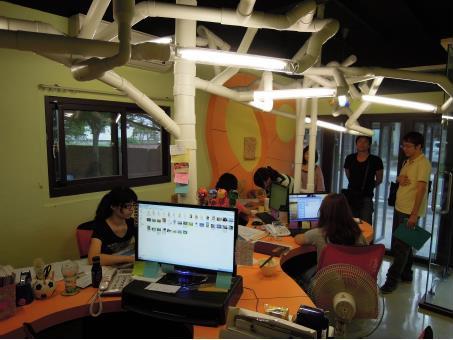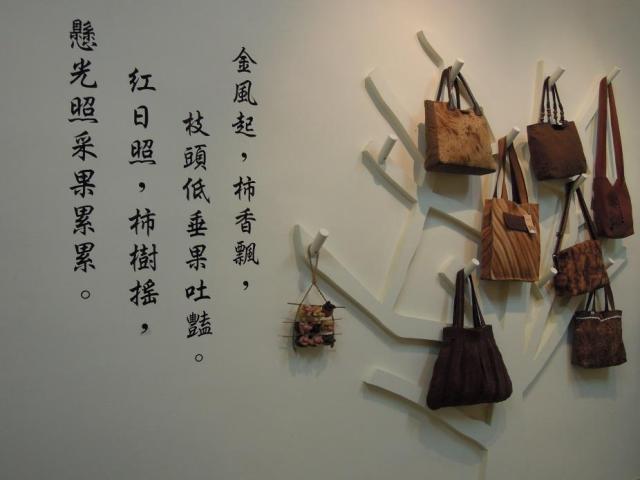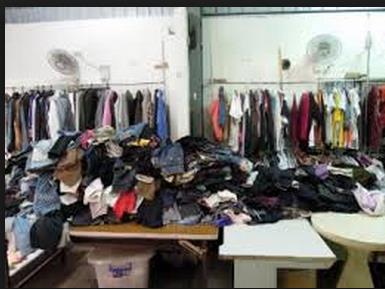GOAL 11: Sustainable Cities and Communities
GOAL 11: Sustainable Cities and Communities
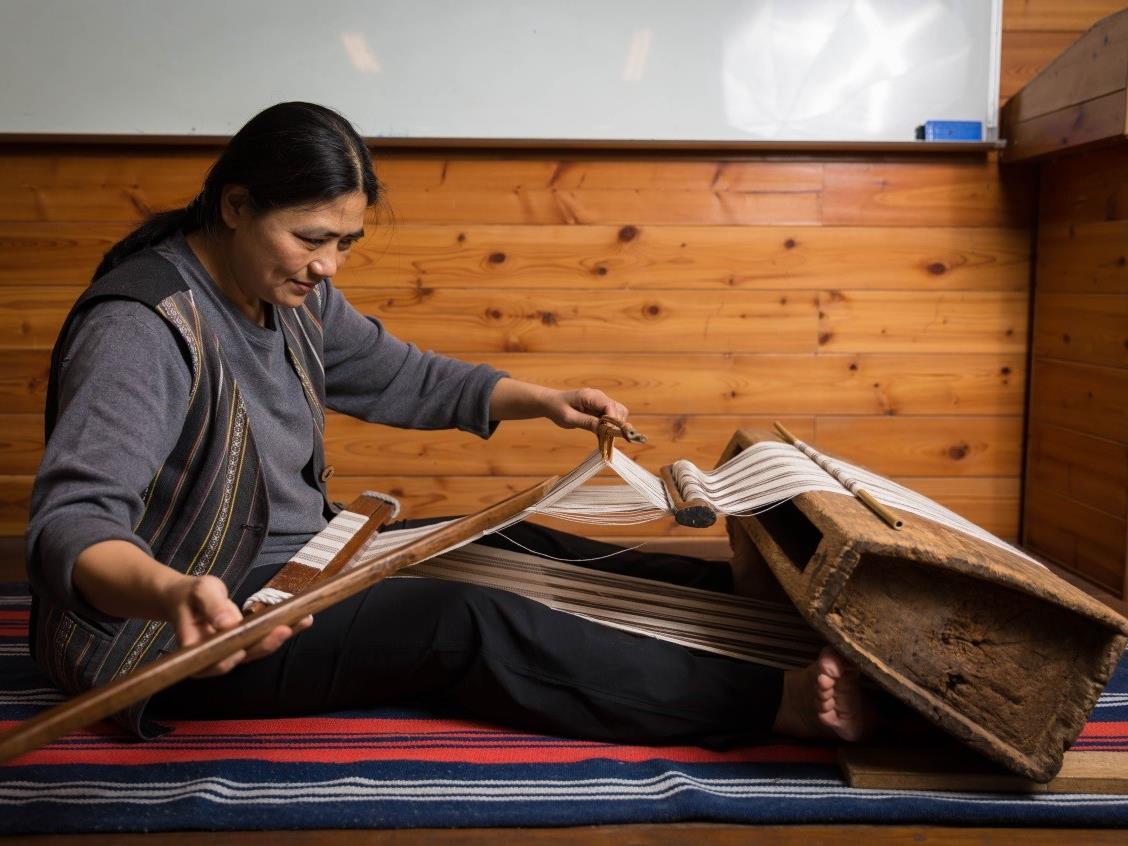
Home/Tag/GOAL 11: Sustainable Cities and Communities
Rediscover Traditional Crafts and Reproduce the Beautiful Saisiyat Culture in Donghe Village
An Interview with Lin Shu-Li, the Craftsman and Yu Yi-Chen, Project Manager of Miaoli County Nanzhuang Township Donghe Community Development Association
Written / Photographed by Yuan Ting-Yao
Outdoors, there are grilled pork, edible wild herbs, glutinous rice, and mysterious cocktails on the dining table; all you can eat. On the square, children are singing ancient folk ballads. Young people and elders are dancing around them. This is not a traditional indigenous festival but the annual cultural exchange where people get together in Donghe Village.
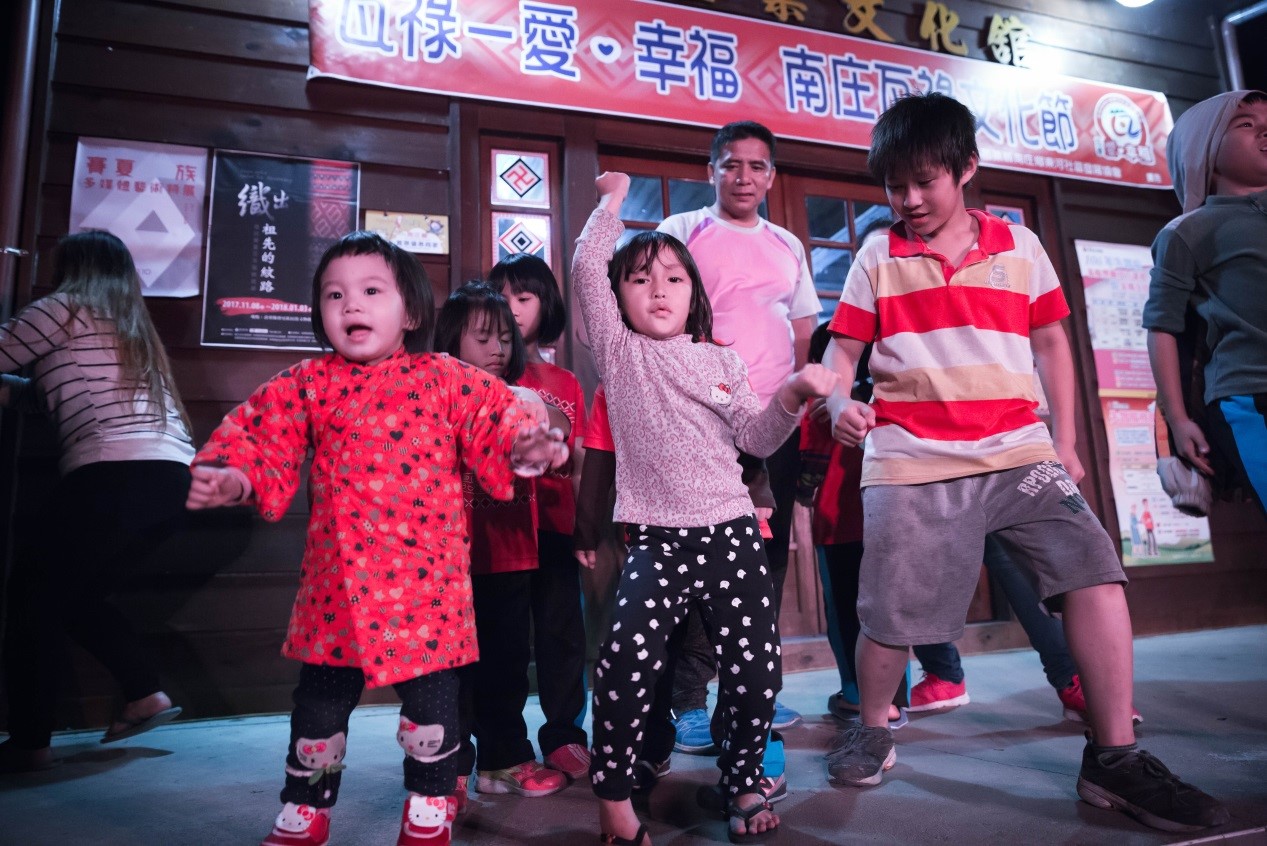
The Walo Cultural Festival is always filled with happiness. (photographed by Yuan Ting-Yao)
This year marks the 15th anniversary for the Walo Cultural Festival. The tribe was full of happiness and joys as if the whole tribe held a wedding. In the daytime, the festival is combined with the anniversary celebration of Donghe Elementary School. There were exciting age-appropriate physical activities and games; in the evening, it’s the cheerful party full of delicious food with people singing and dancing. It is an annual must-see event for visitors.
Donghe Village in Nanzhuang Township used to be called “WALO” tribe, meaning bees and sweetness in Saisiyat. Because of its historical development and geographic location, it is comprised of Saisiyat, Atayal and Hakka people with a total of 14 tribes; it’s indeed a village full of multi-culture.
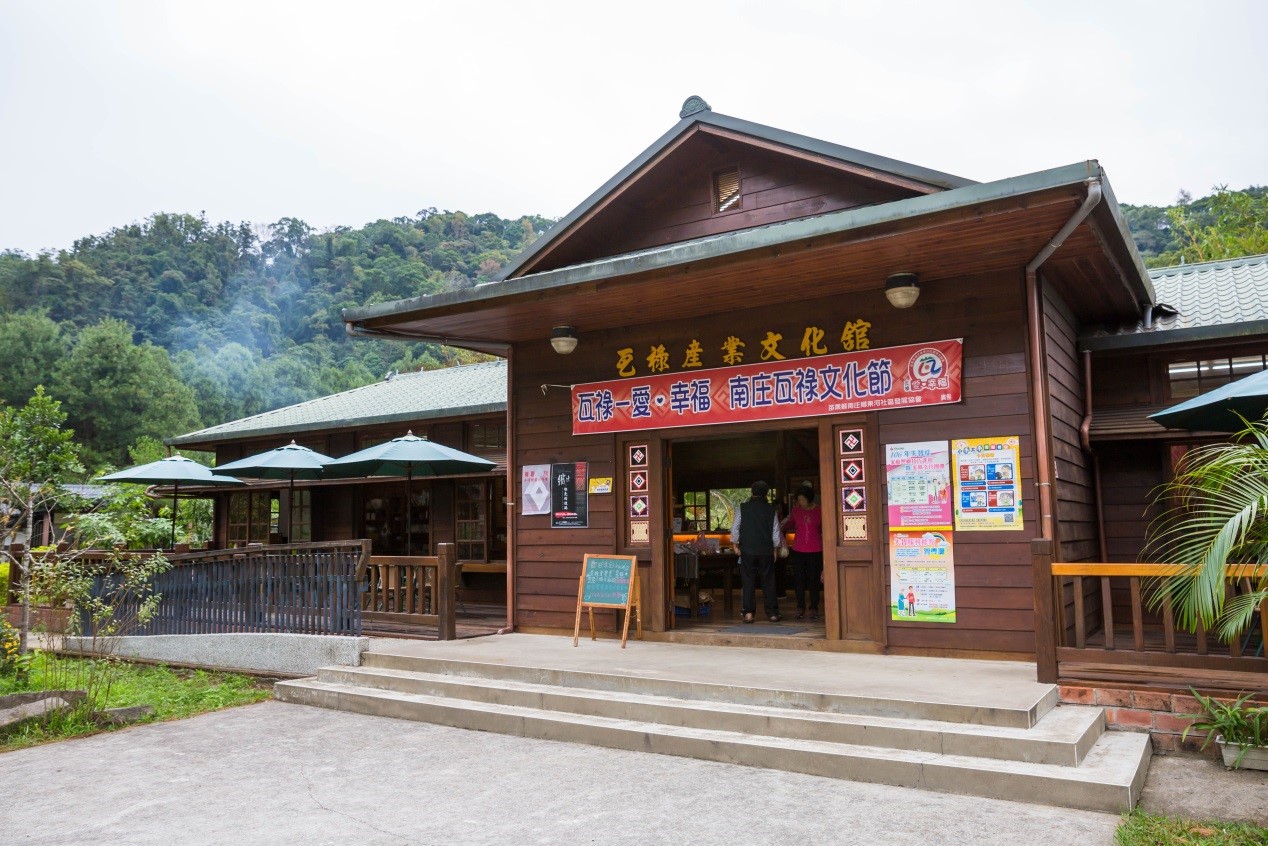
Walo Industrial & Cultural Center is an elegant Japanese-style construction. (photographed by Yuan Ting-Yao)
Renovate the 100-Year-Old Historic Construction to Promote Tourism and Foodservice Industry
Going into the mountain via Nanzhuang Fengmei Road, most visitors would be attracted by the elegant construction of Walo Industrial and Cultural Center on the roadside. when walking into the center, the first thing they notice is the sounds –boom, boom, boom coming from weaving machines operated by the staff. The patterns woven with traditional weaving techniques are just amazing.
The center is located at the site where the old Donghe police station sat during the Japanese colonial period. It was collapsed in 1998. Thanks to the funds raised by “Donghe Community Development Association”, it was renovated in 2005 and has become an important platform for community care and local employment service.
The association did community construction in 2002 and “enhancing the interaction among local ethnic groups” is its primary goal. For this reason, the staff organized a community volunteer group for environmental protection and river-protection. The center is the key base for achieving the association’s goal which is “to support the care work in communities with industrial development.”
In the beginning, only vegetables, fruits, and simple handicrafts were displayed in the center for sale. With the assistance of the Multi-Employment Promotion Program of the Workforce Development Agency, Ministry of Labor, to expand its business in 2008, the interior design of center was decorated with indigenous people’s style ornaments; guide training boosts the quality of the sightseeing and leisure activities in Donghe area. Meanwhile, to solve the dining problem brought by lots of tourists, the “Tribal Restaurant” in the neighboring tribe is rented. Through professional cooking training and purchases of utensils and cookware, the restaurant would become the place where tourists enjoy the local cuisine on holidays. On the weekdays, the restaurant would do catering. Because more manpower is required, job opportunities in the area are increased.
Thanks to the support of Multi-Employment Promotion Program, the association is able to lay the foundation for the tourism and foodservice industries in Donghe Village while the source of incomes provides care work with the elders in the community.
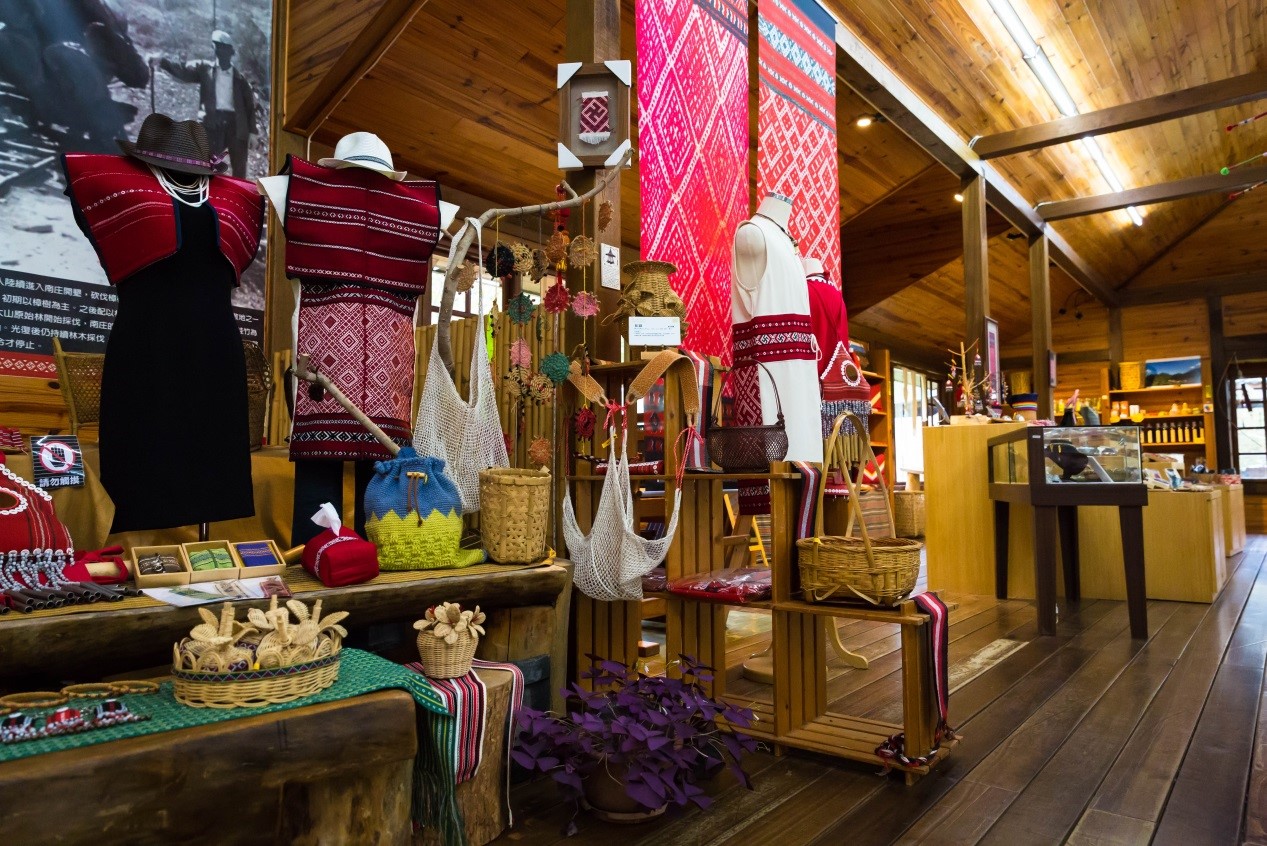
Great works by local craftsmen are displayed in the center. (photographed by Yuan Ting-Yao)
Craftsmen Revive the Dyeing and Weaving
After the implantation of Multi-Employment Promotion Program for five years, the staff ran the association independently for only one year in 2013 due to the election of its board of directors and other factors. Yet, the handover job at the sales department was not properly done and caused the sales to drop, resulting in bad sales performances and staff downsizing.
“The center is the landmark of Donghe Village. If only the center runs stably, tourists will visit here again.” The project manager, Yu Chen-Yi joined the association during its one-year independent operation. The challenges he faced were how to develop the local features while maintaining its stable operation.
After making a complete list of all available resources, they decided to improve the current strategies for tourism. The association applied for the Empowerment Employment Program to the Workforce Development Agency, the Ministry of Labor, aiming for cultural and innovative industry and craft culture to upgrade its current operational strategies.
In the center, the dining department downsized menus and transferred more employees to cultural marketing. Promotion of product sales focused on cultural handicrafts, constructing the entire space into an art gallery to market several local Saisyiat craftsmen and their handicrafts. The agricultural produce becomes secondary. Regarding the tribal kitchen, consultants from the Empowerment Employment Program helped the kitchen staff to come up with a new dish: “edible wild herbs hotpot” (with lots of locally grown ferns and fresh edible wild herbs) which is a visitor’s favorite. Via word of mouth, it has become the most popular dish on their secret menu.
According to Yu, the success of the edible wild herbs hotpot comes from edible wild plants and their kitchen wisdom; in the process of cooperation, the local elders, the farmers and the staff of restaurant keep the links with the traditional culture together. They have created a “cultural stream” internally. The marketing strategies have given distinctive features to the center and the Tribal Kitchen.
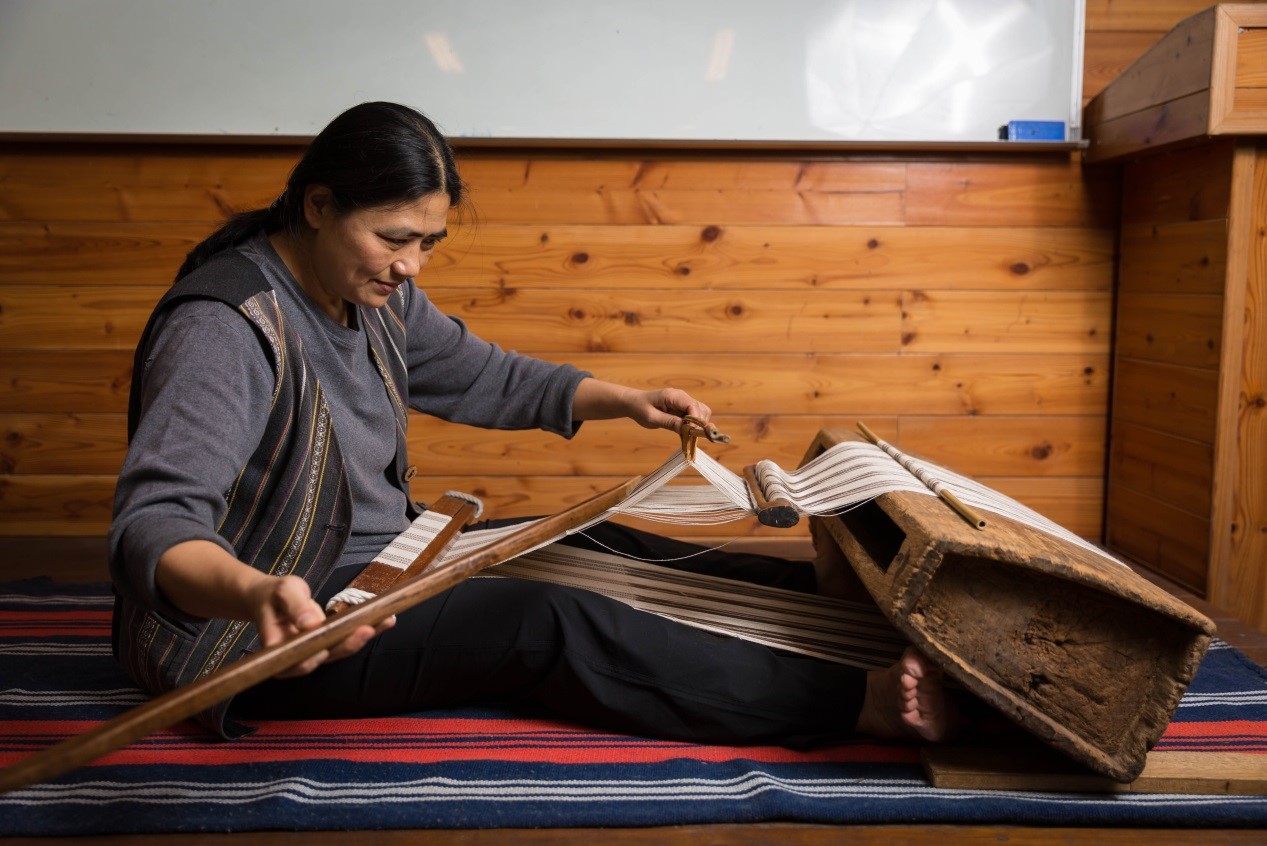
Lin Shu-Li leads Saisiyat people to bring back the memories for their culture through weaving. (photographed by Yuan Ting-Yao)
Pass down the Dyeing and Weaving Crafts
Culture is the most valuable treasure for Donghe Village. In addition to the cultural energy nurtured in the center, the association has a third important place to work with: Raisiny Dyeing and Weaving Crafts Park.
Ms. Lin, the founder of the park and local craftsman, attended paSta'ay 'a'iyalaho (the ritual to the short people) at Xiangtian Lake when she was young. She was very confused about that most of the people attending the ritual wore unorthodox clothes. Later, she married to Raisinay tribe unexpectedly. To pursue her passion for weaving, she spent 25 years learning and researching it and studied under great Atayal weavers. Ms. Lin founded this park in 2006 to pass on the dying and weaving craft and work with the association to offer dyeing and weaving experience activities to visitors.
Most of the villagers in Donghe Village are Saisiyat. The traditional dyeing and weaving craft, they were once very proud of, have disappeared for half a century. The association’s purpose to apply for the Empowerment Employment Program is to upgrade its cultural and creative industry as well as promoting its cultural heritage.
According to their traditions, only tribal people wearing traditional costumes are allowed to attend important rituals in paSta'ay 'a'iyalaho (the ritual to the short people). Ms. Lin hopes that her expertise would help the local Saisiyat people regain the glory of their traditions. Thanks to the support of the Empowerment Employment Program, Ms. Lin works with the association to start the weaving courses in the community.
Via the help of Ms. Lin analyzing pictures and texts in the literature and her teaching, the association has successfully fostered 10 “kathethel” (weaving girl) in the new generation, who reproduced 10 museum-worthy Saisiyat clothes. The clothes were used in the 2016 paSta'ay 'a'iyalaho (a ritual to the short people): the 10th year big ritual. The orthodox ritual is thus reproduced, touching so many people in the tribe. After the ritual, the clothes are collected by NTU Museum of Anthropology. In 2017, the weaving girls finished another 17 pieces of traditional clothes exhibited in Saisiyat Folklore Museum in Xiangtian Lake. their cultural heritage restoration had great results.
During the process of researching for tribal clothes reproduction, the lost traditional crafts such as the “hip ornament” and “webbing” of Saisiyat tribe is rediscovered. Thanks to the teaching by the elders and the crafty hands of craftsmen, the craftsmanship is included in the art class and the handicrafts become popular products in the center.
Under the support and company of Multi-Employment Promotion Program and Empowerment Employment Program for almost 10 years, the association has come up with a stable operation pattern with people in Donghe Village. It created an even larger platform for local employment service while enhancing the long-term care system for the old and young. The operational team is confident in running the center independently in 2018.
Now, different from visiting Nanzhuang Old Street or enjoying the beautiful sceneries in Xiangtian Lake, “A Short Trip to Walo” has obviously become a new attraction in Nanzhuang area. It brought visitors sweet memories filled with memories of yummy food and experience for handmade handicrafts.
Box:(kathethel)
Legend has it that “kathethel” is the daughter of the sea dragon king. She fell in love and married a Saisiyat young man on land and taught his people superb weaving craft. Troubled by rumors and second-guessing, Kathethel left her husband and his people and returned to the sea. Afterward, the Saisiyat people call their women and girls excelling in weaving “kathethel”, meaning they follow traditions and have crafty hands.
Miaoli County Nanzhuang Township Donghe Community
Development Association
Official website: http://www.donghe-walo.org.tw/
Address: 78, Neighborhood 5, Donghe Village, Nanzhuang Township, Miaoli County
Tel No.:
Tel No. for Joint Operation Office: 037-825421
Tel No. for Walo Industrial & Cultural Center: 037-823050
Tel No. for Tribal Kitchen: 037-824729
E-mail:walo823050@gmail.com


